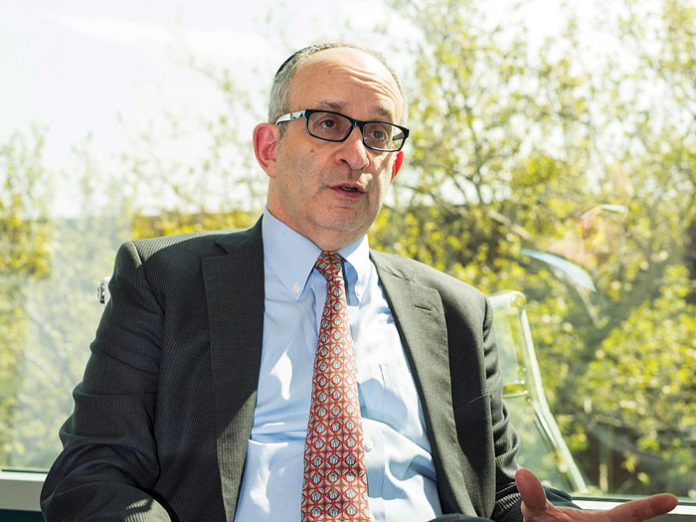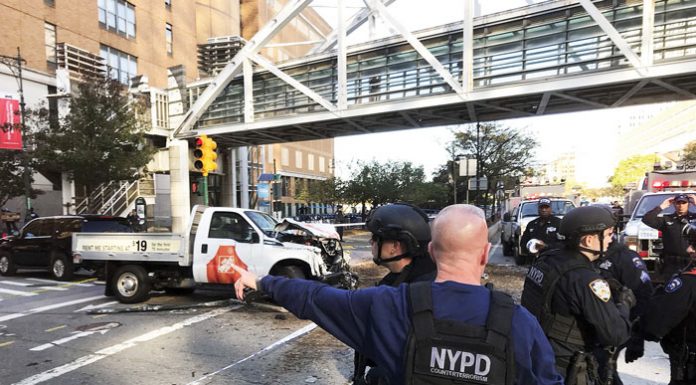We will start with a little history. Between the years 1347 and 1352, an epidemic that caused a person’s lymph nodes to become inflamed wrought havoc across the European continent. The deadly plague, which came to be known as the Black Death, is still considered one of the worst catastrophes in recorded history. It is estimated that the contagion ended up killing between 30% and 60% of the population of Europe.
The Jews living in Europe fared even worse than the general population. Not only did the Jewish community lose its members along with the rest of the populace, it was also blamed for having caused the pandemic. Accused of deliberately poisoning the wells, the Christians sought revenge by massacring thousands of Jews.
On July 6, 1348, Pope Clement VI issued the first of two papal bulls instructing Christians not to blame the Jews for the plague. Noting that Jews were dying from the Black Death as well, the pope proclaimed that those who cast blame upon the Jews “had been seduced by that liar, the devil.” On September 26 of that year the pope again warned Christians not to harm the Jews, and threatened anyone who did so with excommunication. The pope’s statements, however, had only limited success, and many Jewish quarters were sacked and their residents cold-bloodedly murdered.
Fast-forward to recent times. In late 2018 there was an outbreak of measles in the United States, which has now spread to 24 states. To date, several neighborhoods in Brooklyn and Rockland County, each of which has a large percentage of ultra-Orthodox Jewish residents, were the sites of two-thirds of the reported 704 infections. This past March, an Orthodox Jewish man, unaware that he was infected, drove from New York to Detroit, Michigan, and ended up infecting 38 other people. Consequently, New York’s Jewish community was blamed for the outbreak. This time the reason was not that the Jews poison the water supply, but due to their alleged low vaccination rate.
Public health experts corroborated the linkage. As Dr. Nancy Messonnier of the Centers for Disease Control testified before Congress, “I do believe that…most cases we are seeing are in unvaccinated communities.”
To counter this accusation, it has been pointed out that the average vaccination rate for measles among the nearly 200 Jewish K-12 schools in Brooklyn is 96%, six percentage points higher than the statewide average among private schools. By contrast, six other New York counties have a vaccination rate below 50%.
Notwithstanding these valid points, it is also true that there are some people in the Orthodox Jewish community who reside in the infected neighborhoods and are convinced that the measles, mumps, and rubella (MMR) vaccine causes autism, and that the medical establishment has been covering up that fact. As a result, they refuse to vaccinate their children against these diseases.
According to most leading Jewish authorities, the conviction that the MMR vaccine causes autism has nothing to do with Judaism but with the fabrications of a man named Andrew Wakefield, a discredited British doctor who became an anti-vaccine activist. In 1998 Wakefield published a study linking autism to the MMR vaccine. His findings were met with skepticism by many people as soon as he published them, and it was subsequently uncovered that Wakefield had been paid €400,000 to fabricate his conclusions. Still, it took the medical journal in which they were published 12 years to retract the study, by which time their contents had already been broadly disseminated, among gullible Jewish people as well as others.
So when my acquaintance Yehuda Meth, who presently serves as an assistant to Dr. Alan Kadish, the president of Touro College, asked me if I would like to meet Dr. Kadish, who has been trying to educate the community about the importance of the MMR vaccine for the past two years, my immediate response was in the affirmative. Given Dr. Kadish’s distinguished credentials, his opinion on the issue is of great value.





















